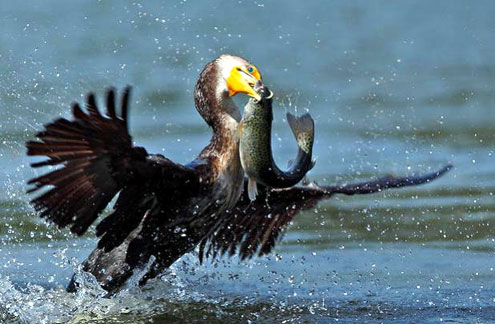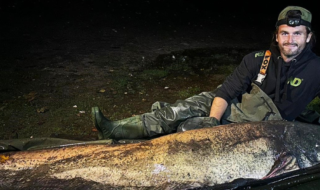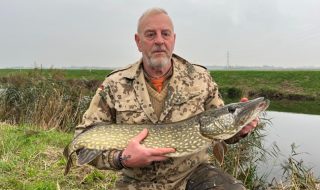Environment Minister Rory Stewart has approved a one year extension of the multi-organisation fish-eating birds initiative, which has been successfully providing advice and practical support to angling clubs and fisheries over the past two years about how to protect fish from cormorants and goosanders.
The Minister also confirmed that the new area-based approach to issuing licences for lethal control will continue, rather than requiring every individual fishery to submit an individual application. The Minister noted that the system has worked well and that it benefits fisheries, which are an important part of the rural economy.
After a three year Angling Trust campaign to persuade the government to take action to tackle unsustainable avian predation, three Fishery Management Advisors (FMAs) were appointed in 2014 to cover the whole of England.
These posts were paid for by rod licence income from the Environment Agency, which has confirmed funding for another year. This continued investment has been welcomed by the Trust and the angling community.
The scheme has been managed by the Angling Trust under the guidance of a Project Board which includes representatives from the RSPB, Natural England, Environment Agency and the Angling Trust.
There are currently two FMAs* employed by the Angling Trust who have helped hundreds of fishery managers on both rivers and lakes with practical advice about techniques to deter birds from fisheries using innovative techniques, including the use of lasers and inflatable orange mannequins.
The expert advisors have also provided invaluable help with the paperwork required to carry out lethal control safely and responsibly either on an individual basis or via an area based licence, which helps with co-ordination of control throughout a catchment.
Mark Owen, Head of Freshwater for the Angling Trust, who manages the FMA team, said: “We are delighted that the Minister has confirmed that we will be allowed to continue with this important initiative to help rural businesses protect their fish from unsustainable levels of predation.
“The extension of the project has been warmly welcomed by fishery managers, many of whom have told us how invaluable they have found the work of the Angling Trust’s advisors over the past two years. We have developed a really good understanding of the various methods that can be used to protect fish and we look forward to helping more businesses protect their livelihoods and rural jobs.”
Sarah Chare, Head of Fisheries for the Environment Agency, added: “We are pleased to be continuing to support this initiative. Damaging avian predation is an important issue for fisheries and angling and it is vital that sound advice is given to manage it. The Minister’s decision allows this work to continue for another 12 months and we will work with our partners to determine the best long term arrangements.”






